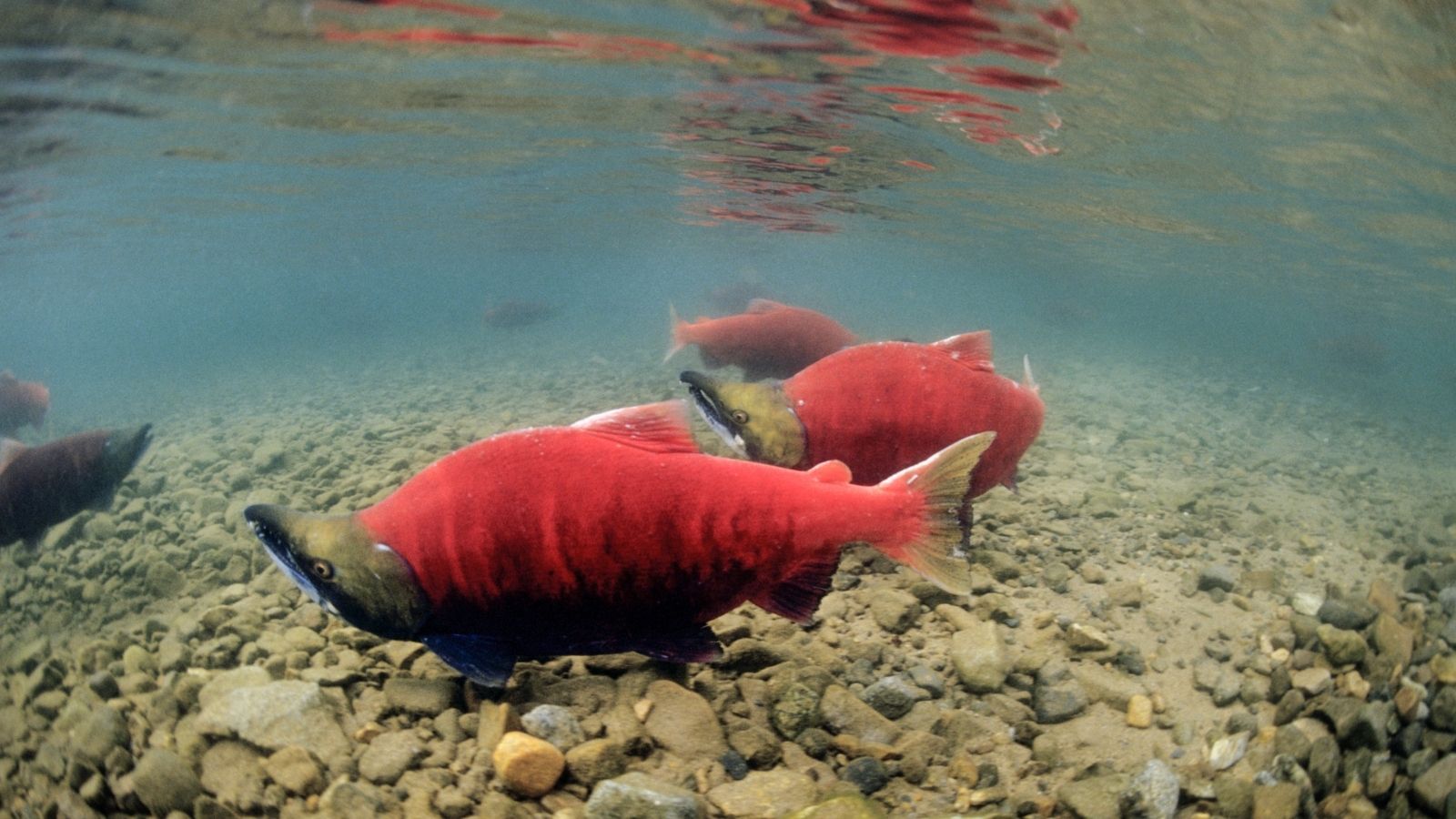We have much more to do and your continued support is needed now more than ever.
Our Northwest Leaders Must Keep Their Promise to Save Wild Salmon
The urgent opportunity before us: Saving salmon, food webs—and us

Our fragile ecosystem is in peril and salmon are running out of time. According to the latest finding in the Nez Perce Tribe’s fish study wild Chinook salmon steelhead populations in the Columbia and Snake River Basins are nearing critical threshold, edging ever closer to extinction.
Northwest Tribes and coastal fishing communities all depend on salmon to thrive. In the vast and complex food web, salmon are a keystone species upon which more than 130 plants and animal species—including black bears and giant salamanders—depend on as a part of their life-cycle.
In the face of this long-simmering ecological and economic crisis, the Northwest region has finally witnessed growing momentum for a comprehensive solution to save salmon through investment in the Northwest infrastructure. In recent weeks, Rep. Earl Blumenauer of Oregon joined forces with Rep. Mike Simpson of Idaho to pilot a groundbreaking framework that will honor Tribal treaties, and to support agriculture and energy—and recover salmon runs in the Columbia River Basin.
This breakthrough comes at a critical moment. Salmon don’t have time. Tribes don’t have time. Countless Northwest wildlife don’t have time.
Going against the flow?
But this historic framework—a once-in-a-generation opportunity—has encountered political headwinds. U.S. Senator Patty Murray and Washington Gov. Jay Inslee have rejected this bipartisan approach while also promising to lead a regional discussion on the challenges facing salmon.
So now it is up to us to hold them to that promise. Our elected leaders have made an unequivocal commitment that salmon will not go extinct on their watch. We must hold them to this promise, starting today: Endangered Species Day.
TAKE ACTIONThere is a clear path for our elected leaders to follow, starting now:
- Move forward immediately and reach a conclusion in months, not years.
- Provide substantial, upfront funding for planning, for implementation, and for addressing the needs of communities that will be affected by the steps necessary to bring salmon back. The moment to secure that funding is now as our country prepares to make extensive investments in infrastructure.
- Recognize the central role of Native American Tribes as sovereign govenrments and full partners in developing and implementing the Murray-Inslee plan. History demands no less.
- Build on the clear scientific evidence that without restoring the lower Snake River and removing four dams there, Snake River salmon will go extinct.
The salmon and steelhead runs that defined the Columbia River Basin were once among the greatest in the world. They have shaped the region’s ecology, fed its inhabitants for time immemorial, and fueled local economies. Yet four dams on the lower Snake River, the biggest tributary of the Columbia River, have taken a heavy toll on these valuable fish runs. We’ve long known that these dams and migrating fish were incompatible, yet we’ve studiously averted our gaze from this troubling truth.
The science is clear. Of the factors impacting the health of the Columbia River Basin, the four lower Snake River dams are the one factor that we can control, the one factor that will have the greatest impact on salmon recovery — and removing the earthen portions of them is the one solution we haven’t tried.
Almost 80% of Snake River Basin spring and summer chinook could be on the path to extinction in the next four years. When the Nez Perce Tribe released its alarming salmon report, it cited tribal elder Elmer Crow Jr., who passed away in 2013:
“We are the circle. That is what life is all about. We take care of one another. So when we have someone in trouble, that’s when the rest of us have to step in.”
Crow’s meaning is clear: If salmon are in trouble, we are in trouble. We ignore our deep connections to salmon and the rivers they need to thrive at our own peril. We must step in and step up. We must take care of one another and invest in our connection to the natural world.
And our elected leaders must keep their promises.





















